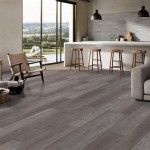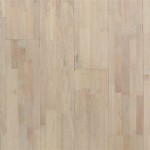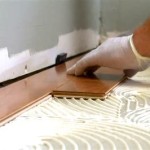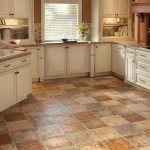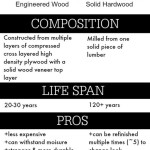Ceramic Tile Flooring: A Comprehensive Overview
Ceramic tile flooring has emerged as a popular choice for homeowners and designers alike, offering a myriad of advantages and aesthetic appeal. This comprehensive overview delves into the essential aspects of ceramic tile flooring, providing a thorough understanding of its characteristics, benefits, and considerations.
Composition and Manufacturing
Ceramic tiles are composed of clay, minerals, and glazes. The clay is shaped and fired at extremely high temperatures to achieve durability. Glazes are applied to the tiles before firing to create a protective layer and enhance aesthetics. The firing process vitrifies the tiles, making them highly resistant to water and stains.
Types and Finishes
Ceramic tiles come in a wide range of types, each with unique properties and finishes. Glazed tiles feature a glossy or matte finish, providing a sophisticated look. Unglazed tiles, also known as quarry tiles, are more durable and suitable for high-traffic areas. Porcelain tiles are a dense, durable type of ceramic tile that can mimic the appearance of natural stone or wood.
Advantages of Ceramic Tile Flooring
Ceramic tile flooring offers numerous benefits, including:
- Durability: Ceramic tiles are incredibly durable and resistant to wear, making them suitable for both residential and commercial applications.
- Water Resistance: Ceramic tiles are virtually impermeable to water, preventing damage from spills and moisture.
- Stain Resistance: Glazed ceramic tiles are highly resistant to stains, making them easy to clean and maintain.
- Hygienic: Ceramic tiles do not harbor bacteria or mold, making them an ideal choice for kitchens, bathrooms, and other hygiene-sensitive areas.
- Versatility: Ceramic tiles are available in a vast array of colors, patterns, and textures, allowing for customization and complementarity with various design styles.
Considerations and Maintenance
Before selecting ceramic tile flooring, it is important to consider the following:
- Proper Installation: Ceramic tiles must be professionally installed to ensure a seamless and durable finish.
- Grout Care: Grout lines can become discolored over time. Regular cleaning and sealing are necessary to maintain a pristine appearance.
- Chipping and Cracking: Although ceramic tiles are durable, they can be prone to chipping or cracking under heavy impact.
Conclusion
Ceramic tile flooring offers a combination of durability, water resistance, stain resistance, hygiene, and aesthetic appeal. Its versatility and wide range of types and finishes make it a suitable choice for various spaces and design preferences. By understanding the essential aspects of ceramic tile flooring, homeowners and designers can make informed decisions and enjoy the benefits of this timeless and elegant flooring option.

Concrete Project Floor Ceramic Tiles

Complete Overview Of Diffe Types Terracotta Tiles

Interior Design Trends To Watch On The Tiles Hotel Designs

Stone Flex Tiles Gemstone Collection

Fair Preview Cersaie 2024 Bologna The Leading International Exhibition Of Ceramic Tile And

Rustic Tile Porcelain Full Floor Tiles Glazed Lapato Ceramic Made In Com

How To Start A Ceramic Tile Business Complete Guide Foshan Sourcing

Creating Beautiful Floors Auswood International

Full View Of Tile Traverting Gold Glazed Porcelain Tiles By Lavish Ceramics Manufacturers Ceramic

Daltile Revotile Rectangle Wood Visual Floor Tile
See Also

